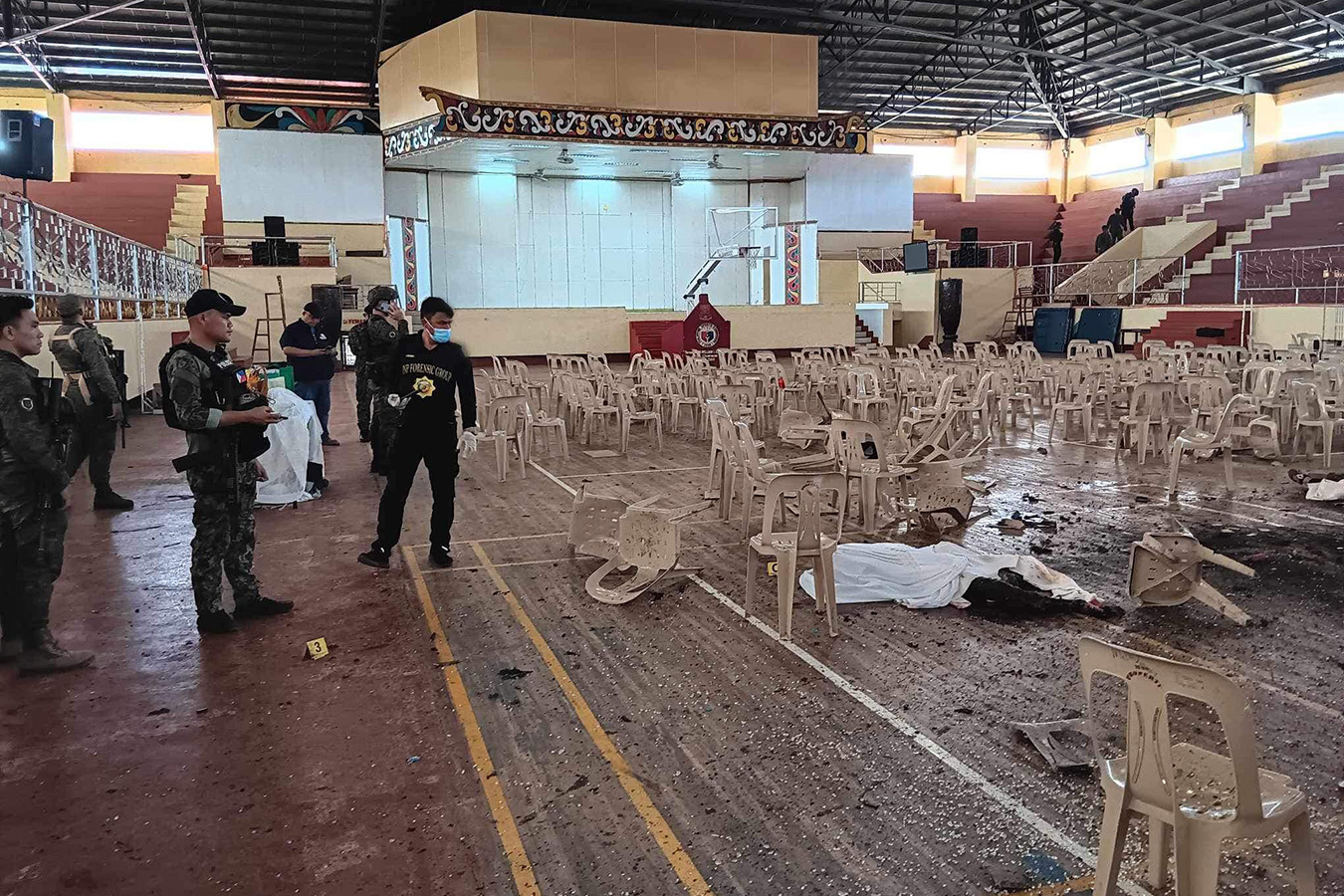D'Ambra: a symbol of coexistence was hit in Marawi, but dialogue ought to continue
The PIME missionary reflects upon yesterday's attack. In the Philippines since 1977, he is the founder of the Silsilah Movement. In Marawi, people continue to suffer the consequences of “what happened six years ago with the siege of the city by the Maute, a group associated with the Islamic State”. Following the latest incident, “It is hard to say now what the possible consequences will be, including for the peace process”.
Zamboanga City (AsiaNews) – The Islamic State (IS) group claimed responsibility for yesterday’s explosion that killed four people and wounded dozens at a Mass in Marawi. For Fr Sebastiano D'Ambra, speaking to AsiaNews, the "indiscriminate" action gave IS the opportunity to retaliate as well as get the visibility they sought following "recent clashes" between the military and the group and its allies.
In the Philippines since 1977, the 81-year-old member of the Pontifical Institute for Foreign Missions (PIME) has been active in interfaith dialogue and has a deep knowledge of Muslim groups (including armed groups) active in the south of the country.
He has spent much of his missionary life in Mindanao focusing on dialogue with Muslims, serving as a peace negotiator, and helping the Moro National Liberation Front (MNLF). He studied Islam and Arabic at the Pontifical Institute of Arabic and Islamic Studies (PISAI) in Rome, holds a doctorate in education and is the author of many books.
He has held several positions, including director of the new Emmaus College of Theology Major in Interreligious Dialogue in Zamboanga, coordinator of the World Interreligious Harmony Week in the Philippines, and executive secretary of the Commission for Interreligious Dialogue of the Catholic Bishops' Conference of the Philippines (CBCP).
A long-time collaborator of AsiaNews, Fr D'Ambra s founded the Silsilah movement 39 years ago in Zamboanga City to promote interfaith dialogue. The group plays a major role in developing cultural awareness, education and sharing to ultimately bring Christians and Muslims together.
Since 1984, the Silsilah Forum has sought to defuse tensions and appease outbreaks of religious violence. Such a task is reflected in the very name of the movement, which means the "chain" or "bond" that unites man to God and comes from Sufi Islamic mysticism. The PIME missionary's reflection follows:
What happened yesterday in Marawi, the main Muslim city on the island of Mindanao, is unfortunately not unlike what happened six years ago with the siege of the city by the Maute, a group associated with the Islamic State here in Mindanao. That was an attempt to focus international attention on their claims, which ended with the city’s devastation and hundreds of victims. Even today, the people of Marawi, most of whom are Muslim but where coexistence with Christians is part of everyday life, continue to suffer the consequences.
The Mindanao State University – which was attacked yesterday, where young Muslims and Christians from different provinces of the island study – is an example of coexistence.
What several parties told me, what I have read, and what Bishop Edwin de la Peña of Marawi said during a conversation I had with him, is that the Islamic State was likely behind the incident. The reasons for the attack are probably the recent clashes between the military and groups linked to or allied with the self-proclaimed Islamic State. With such indiscriminate action, they took revenge and got the visibility they sought.
It is hard to say now what the possible consequences will be, including for the peace process and coexistence. I would say that today the situation is tense, but it is part of our experience in Mindanao.
We founded the Silsilah movement 39 years ago, and since then, we have experienced various phases of hope, fear and tensions in our commitment to dialogue. Overall, I can say that there has been progress in dialogue, even if it is difficult to have a direct relationship with these groups.
The latter continue to live their own reality and sometimes justify what they do by their own way of thinking. The ideological factor that provides the basis or justification for the actions of some of them is difficult to deal with.
In addition, in the Marawi area there are major conflicts between families and clans, each trying to get stronger and gain advantages over the others. Local interests end up being associated with those of outside groups, fuelling a tense situation in which it is hard to intervene. Still, we at Silsilah will continue our journey of dialogue without preconditions.
* PIME missionary in Mindanao
(Photo from the website of the Catholic Bishops’ Conference of the Philippines)
06/05/2024 18:26
03/01/2020 15:49
31/10/2008







.png)










